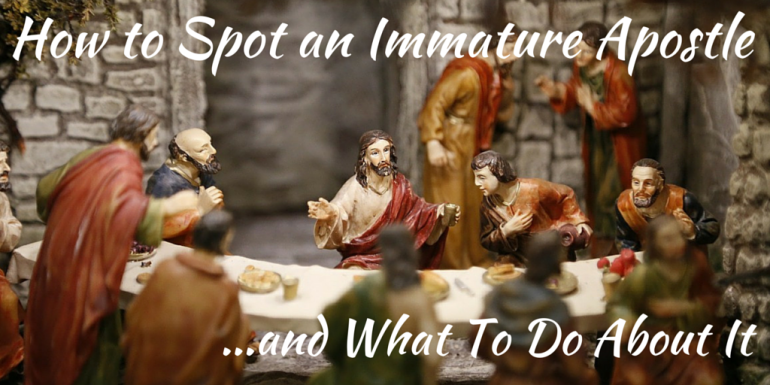How I Learned Being a Christian Wasn’t Meant for Me
I struggled being a Christian for the longest time—particularly because I couldn’t see the relevance behind it.While growing up, I knew there was some significance to faith because we went every Sunday. Yet that curiosity slowly receded as the week went on. The farther we got away from Sunday, the more I questioned why Christianity was even relevant at all. Why did we need it if it didn’t apply to our daily life?
This question bounced around my mind until it came time for me to make faith my own.
I’ve heard it been said that my generation is full of smart consumers. We don’t allow things into our lives so easily. We’re first skeptics before we’re adopters. We analyze the value of things before they enter into our lives.I felt like this was true of me when I first investigated the church. I was skeptical of everything, questioning whether I truly needed this.
I ended up keeping faith, primarily because I didn’t know anything else. But then, I ran into the problem again. Sunday became the only day I expressed my faith. Monday through Saturday became my priority.
And once again the questioning and doubt began: How relevant was Christianity? How useful was it to my life?
Many of us have struggled with this question. But now I understand: Asking these questions is feeding into the problem.
Wonder why faith seems like a Sunday thing only, not an everyday thing? Wonder why it feels rote and superficial at times? Wonder why it seems impractical and irrelevant to our daily lives?While struggling with these questions in college, it finally hit me: The reason Christianity felt irrelevant to my daily life was because it wasn’t for me.
Like any smart consumer, I assumed myself as being the main priority. If the product didn’t serve me, I would cut it out of my life. But the mistake I made was that I couldn’t approach Christianity with a consumer mindset. I couldn’t assess whether it was serving me or not because faith is inherently meant for others.
Consumerism—Or Why Faith Becomes Irrelevant
Yet, I can’t help but notice how many of us approach Christianity like consumers. We look to how it serves us first, and if it doesn’t—if it’s not relevant to our daily life—then we don’t care for it.But the funny thing is, the more we look to faith as primarily for personal benefit, the smaller we make it. This is when we actually make faith irrelevant.
At the very core of our faith is a holistic understanding that we are to serve God in everything we do—meaning, faith really does apply to our daily life. But when we place ourselves at the center, making faith serve us, then we only turn to faith when we need it.
This is why faith was irrelevant to my daily life.
The more I made faith about me, the more I fractured its significance, watered it down till it drifted from its holistic vision.
What “Living It Out” Really Means
By now, you might be wondering: How did I make faith about me?First off, like many Christians today, I was obsessed with discovering how to “live it out.”
In our churches, we’re all about learning how to be the perfect Christian. This is good, except when it ends with us.
We’re obsessed with “living it out,” but I’m surprised by how rarely that means making a difference in people’s lives.
The sad truth is, many people only want to learn how to be a better Christian, not how to impact people with their faith. They want to learn how to achieve better morals, how to act and how to live a more pure life; but that knowledge sometimes doesn’t compel us to impact other people. Sometimes, all it does is impress people.I was like this. I went to church because I wanted to know how I could better live it out—like Christianity was the latest craze for happier, healthier living.
Fortunately for us, Christianity is not a fad. It’s much more lasting than that because it’s not only about improving how we live, but improving how we impact.
Faith as a Band-Aid
Secondly, I turned faith into a band-aid.Like the people posting cheesy, motivational Christian memes of, “You can get through this because Jesus loves you,” I made faith about getting me through hard times. To me, it was like finding the right amount of spirituality to quell my discomfort with life.
Tragically, many people only turn to faith when they need it, when the going gets rough. They treat it like a motivational resource meant to heighten one’s life.
We’ve drifted from a holistic faith because we’ve said faith is only about getting us through hard times.
We’ve bought into this idea so much that I believe sometimes we forget that faith, when it is truly lived out, is what brings us into hard times. Surely, it’s not a worldview that promises easy times. Instead it promises the challenge of growing spiritually in a backwards world.Also, while faith does offer solace in hard times, we can’t limit this to being the primary purpose of faith.
Faith doesn’t begin and end with our wounds. We don’t use it like band-aids when life cuts us. Faith informs everything, not just our pain.
I used to treat faith like it was mine—a product serving my consumer needs. But I’m not that immature anymore. I know life isn’t about me. I know Christianity is something that extends past my sphere of influence.Christianity is not trying to sell me on how it’ll improve my life. Rather, it’s trying to compel me to live selflessly with my life.
It’s trying to teach me that living like Jesus is much better than living for myself.
I still haven’t perfectly arrived at this truth. I sometimes treat faith like it’s solely for me. But at least I know now: Christianity wasn’t meant for me, and the more I keep it as something for my personal benefit, the more I distance myself from what it’s truly meant for—impacting others for His purposes.If you ask me, that’s a much better story to live for.
















